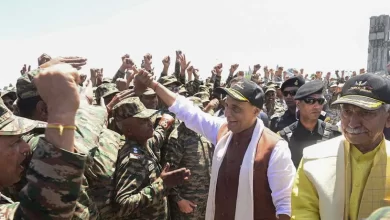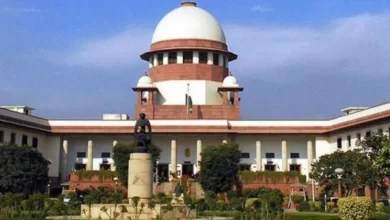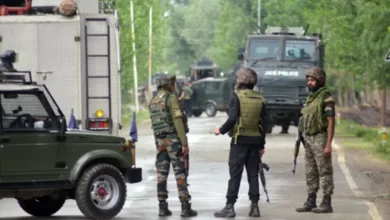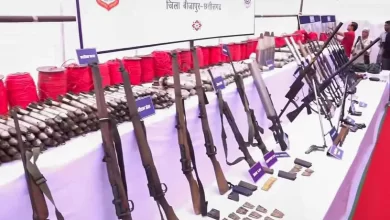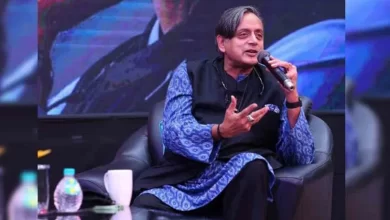India terror law haunts Muslims jailed since 2020 for Delhi riots
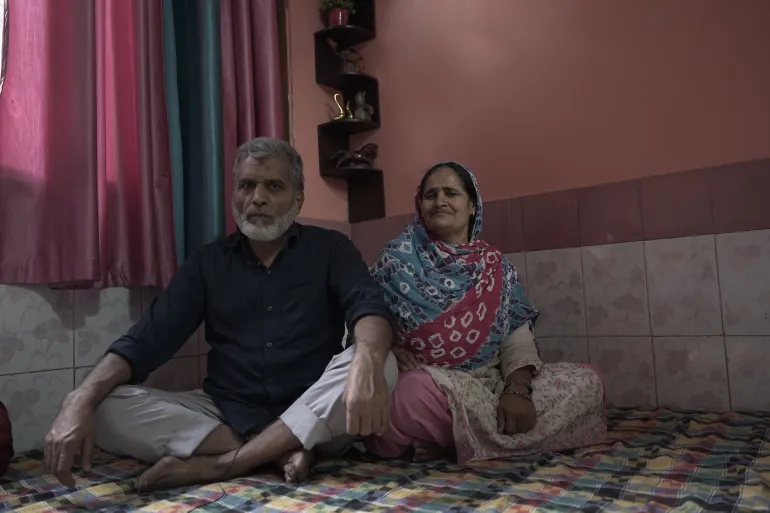
Activists and family members of those languishing in jail for 2020 violence say the ‘draconian’ UAPA law is being misused to deny them bail.
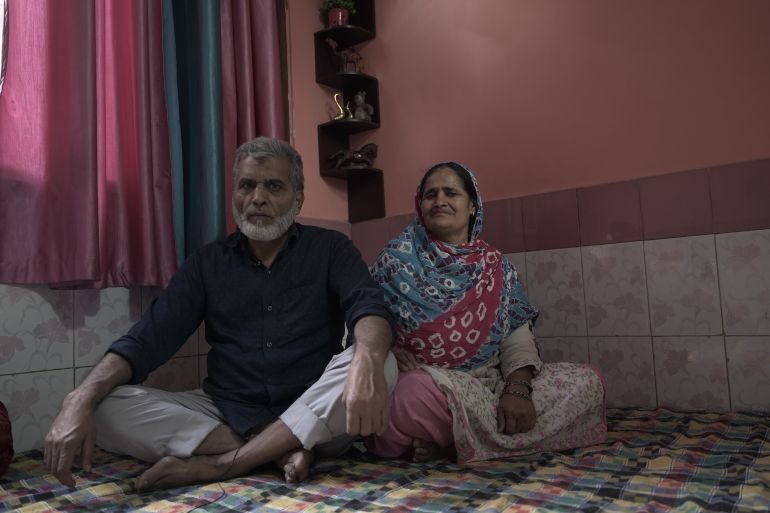
New Delhi, India – Saima Saleem, 27, has been waiting for hours on a bench outside a court of law in New Delhi, her eyes glued to a corridor as she waits for her father, Mohammad Saleem Khan, to appear.
Khan, 49, was arrested three years ago for rioting and murder during the religious riots in the Indian capital, in which 53 people – most of them Muslims – were killed. The courts provided him bail in both the cases.
But Khan continues to languish in jail as he has not been able to secure bail in a case under the Unlawful Activities Prevention Act (UAPA), a controversial anti-terror law that has been used against Khan and several other Muslims accused of allegedly “pre-planning” the riots.
“My father is innocent. He was a prominent social worker in the community who helped people and he was targeted for that,” Saima told Al Jazeera while waiting for her father to arrive at the Karkardooma court.
“People now treat us like terrorists even though everyone knows all these charges are politically and communally motivated,” she said.
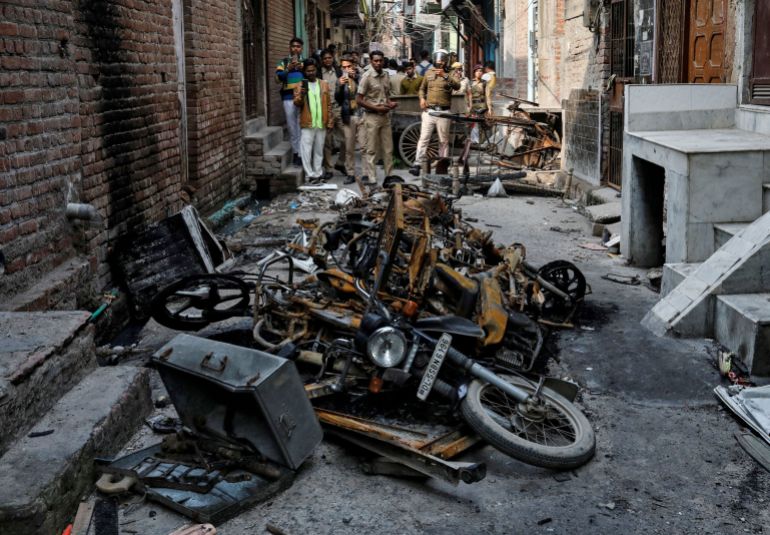
UAPA, termed by critics and rights groups as a draconian legislation, was amended in 2019 by the right-wing Bharatiya Janata Party (BJP) government to allow authorities to declare an individual a “terrorist” and detain them without trial for months, sometimes years. Previously, the “terrorist” tag was reserved only for groups or organisations.
The government last year informed the parliament that nearly 4,700 people were arrested under the law between 2018 and 2020, but only 149 were found guilty – a conviction rate of nearly 3 percent.
Police booked at least 18 Muslims, including student leaders and activists such as Khalid Saifi, Umar Khalid and Miran Haider, under the UAPA, alleging a “larger conspiracy” to create religious tensions – a claim rubbished by legal and rights exper.
“The reason why these people are still in jail in spite of charges being dismissed on so many grounds is that they have been booked under a draconian law like UAPA which calls itself an anti-terror law but has always been used to suppress dissent,” rights activist Kavita Krishnan told Al Jazeera.
“Under this law, it is difficult to get bail so the police just need to charge people under UAPA and delay the trial by saying that they are investigating and so you are likely to remain in prison for many years,” she said.
Police ‘selectively targeting’ Muslims
Saleem’s allegation that the police investigation into the Delhi riots is being conducted on religious lines is not an isolated voice.
Critics and several international rights groups have accused the Indian authorities of framing members of the Muslim community for instigating the violence, which erupted after right-wing Hindu groups targeted peaceful sit-in protests against a recently-introduced citizenship law.
The Citizenship Amendment Act (CAA) allowed non-Muslims from India’s neighbouring countries to secure Indian citizenship if they arrived in India before December 2014. Critics said the law violated India’s secular constitution and the United Nations experts called it “fundamentally discriminatory”.
The passage of the law triggered unprecedented protests by India’s Muslims, with a mainly women-led sit-in at New Delhi’s Shaheen Bagh being the epicentre. Meanwhile, several BJP leaders made inflammatory speeches – even threatening violence – and called to forcefully disperse the protesters.
The riots that followed – which many government critics termed as an anti-Muslim pogrom – led to the widespread destruction of property and displacement of thousands of people, mostly Muslims, in the northeastern part of the Indian capital. Mosques, homes and businesses were burned and looted.
“The people who actually gave hate speeches and instigated the riots, that include BJP leaders, are still free. They have not spent a single day in prison. Those imprisoned are Muslims who were involved in peaceful sit-ins against a law which threatened to disenfranchise them,” activist Krishnan told Al Jazeera.
Al Jazeera reached out to BJP spokesman Gopal Krishna Agarwal, but he refused to comment on the story.
In a report on the Delhi riots, the United States-based Human Rights Watch said last year the police investigations into the violence were “marked by bias, delays, inaccuracy, lack of proper evidence, and failure to follow proper procedures”.
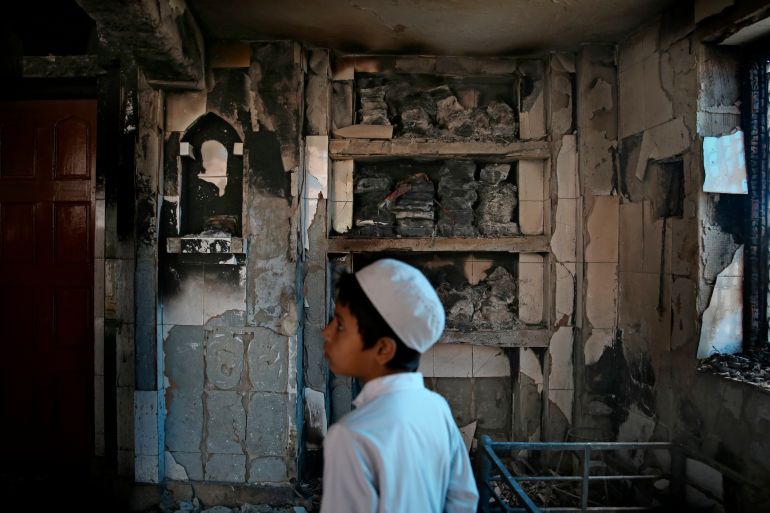
Moreover, the Delhi Police, controlled by the federal government, were also accused of inaction and selective targeting of Muslims during the violence. In one glaring instance, police officers were seen throwing stones towards Muslims along with the Hindu mobs during the riots.
“The police were leading the mobs in throwing stones at Muslims and also vandalising properties,” Muslim activist Aasif Mujtaba, who has worked on the rehabilitation of the survivors of the riots, told Al Jazeera. “During the violence, police were at the back protecting the rioters who were rampaging at the front.”
Many rioters confessed to the media that the police helped them attack Muslims during the violence. “We did not have enough stones here, so the police brought some and told us to throw them,” a man told BBC in a recent documentary on the aftermath of the violence.
When asked about the allegations, Suman Nalwa, deputy commissioner of police for public relations in New Delhi, told Al Jazeera, “I can’t comment on the issue. Everything is in public domain. You can check the news reports.”
But the courts have also termed police investigations in many Delhi violence cases as “farcical” and “callous”. In September 2021, a Delhi court released Muslim men in a case of rioting for lack of evidence and “failure of the investigating authorities to conduct a proper investigation”. A month later, the judge who gave the verdict was transferred for unreported reasons.
‘Government wants us to be silent’
Syed Tasneef Hussain, 58, is unsure when his 30-year-old daughter Gulfishan Fatima would be out of prison. Following the Delhi riots, Fatima was charged with multiple allegations, including rioting, murder and inciting communal violence.
However, her parents say she was targeted for leading a peaceful women-led protest against the CAA in Jaffarabad, a mainly Muslim neighbourhood in northeast Delhi.
“It has been three years since she has not been home. I wish she is back soon,” Hussain told Al Jazeera at his residence. “They [government] want us to be silent and devoid of any voice. We are being harassed and intimidated for no reason. What is our mistake? That we are Muslims?”
Like Khan, Fatima has also received bail in multiple cases but continues to be in jail under the UAPA. Activists say protesters such as Fatima and Khan are being punished for merely opposing the government’s policies.
“We have very fine young people in prisons under UAPA for years without their trials beginning. People who clearly instigated the hate despite our intervention in the highest courts of the land haven’t been arrested. On the other hand, they created flimsy charges against people who were prominent in the anti-CAA protests,” prominent rights activist Harsh Mander told
MR Shamshad, a lawyer in India’s Supreme Court who has taken up several Delhi riots cases, said many people were charged without evidence.
“To initiate criminal trials, you need substantive evidence but in most of these cases those substantive evidences are missing,” he told
Shamshad said the UAPA is a “draconian law which should be applied sparingly in very exceptional circumstances”. “But it appears that in Delhi riots cases, it has been unreasonably imposed upon many people,” he added.


